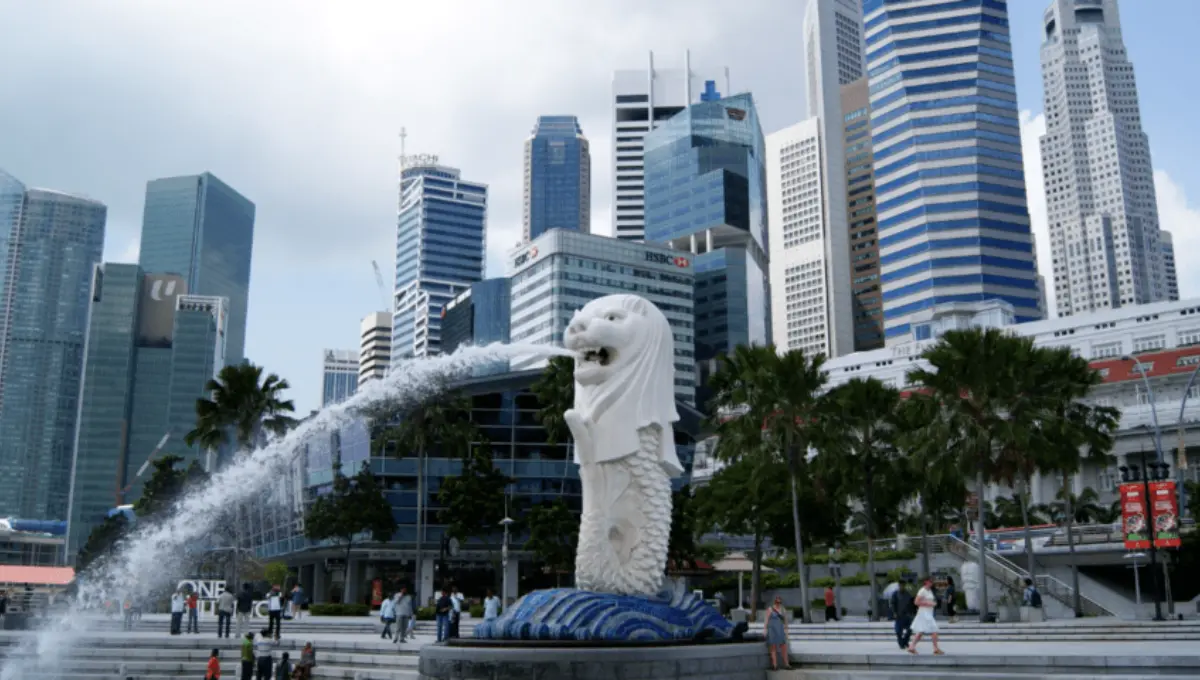Singapore has imposed fines on three law firms connected to breaches of anti-money laundering (AML) rules in relation to a massive $3 billion money laundering scandal that came to light in 2023. This enforcement action forms part of the wider fallout from one of the largest money laundering cases in Singapore’s history, involving illicit profits from an illegal gambling syndicate that operated across Southeast Asia. The syndicate laundered funds through high-value purchases, including luxury real estate in Singapore’s most affluent districts, leading to extensive investigations and regulatory scrutiny of the legal and financial sectors.
Background of the Money Laundering Case
The $3 billion money laundering scandal was uncovered in August 2023, when authorities arrested ten foreigners linked to the syndicate, including nine men and one woman originally from Fujian, China. The group was involved in illegal gambling activities targeting punters primarily in China and across Southeast Asia, funneling millions of dollars into luxury assets in Singapore. As part of the investigation, authorities seized over 150 properties, luxury vehicles, designer watches, jewelry, cryptocurrency, and other valuable assets.
The scandal revealed significant vulnerabilities in Singapore’s AML framework, especially concerning conveyancing transactions for seized properties. Lawyers and law firms involved in these transactions came under intense scrutiny for potential breaches of anti-money laundering obligations.
Regulatory Actions Against Law Firms and Lawyers
Singapore’s Ministry of Law (MinLaw), supported by the Director of Legal Services (DLS), conducted investigations into 24 law practices involved in the conveyancing of the seized real estate. As of mid-2025, inquiries into 11 of these practices have been concluded, leading to regulatory enforcement against several firms and individuals.
- Fines and Reprimands: Three law firms were fined significant sums for breaches related to the scandal. Two firms were ordered to pay S$30,000 and S$100,000 (approximately USD 23,400 and USD 78,000) respectively. A third firm received a statutory notice indicating an intention to impose a penalty of S$70,000 (around USD 54,600), pending the firm’s representations.
- Private Reprimand and Disciplinary Referrals: In addition to fines, one law practice was privately reprimanded. Furthermore, one lawyer implicated in the case has been referred to the Law Society of Singapore for possible disciplinary proceedings related to breaches of professional conduct and AML obligations.
- Ongoing Investigations: Investigations continue into the remaining law practices, with the Ministry of Law closely examining whether additional penalties or disciplinary referrals are warranted.
MinLaw emphasized that law firms and lawyers are required under Singapore’s Legal Profession Act to maintain stringent AML controls. These include conducting detailed client risk assessments, performing customer due diligence based on the client’s risk profile, monitoring transactions, and filing suspicious transaction reports when necessary. If lawyers suspect clients of involvement in money laundering but decide to continue representation, they must document the justifications and implement enhanced due diligence and monitoring measures.
Named Law Firms and Lawyer Involvement
Four law firms have been publicly named in the regulatory actions relating to the case: Anthony Law Corporation, Fortis Law Corporation, Legal Solutions LLC, and Malkin & Maxwell LLP. These firms were involved in the conveyancing of real estate seized in the AML operation. Two other law firms, William Poh & Louis Lim (now Louis Lim & Partners) and Templars Law LLC, were also identified and reprimanded as part of ongoing inquiries.
Five lawyers who facilitated conveyancing for the seized properties have been referred to the Law Society for further disciplinary review. The referred lawyers are: Mr. Tan Chau Chuang, Mr. Andrew Wong Wei Kiat, Mr. Tan Tse Chia Patrick, Mr. Ee Tian Huat Patrick, and Mr. Poh Tian Hock William.
Statements from the firms varied: Fortis Law Corporation acknowledged the findings and stated it had cooperated fully with authorities, enhancing its internal controls and client monitoring procedures. Anthony Law Corporation declined to comment presently but confirmed that the involved lawyer remains with the firm in a different role. Templars Law LLC declined to comment due to ongoing investigations.
Broader Financial Sector Sanctions
Alongside actions in the legal sector, the Monetary Authority of Singapore (MAS) fined nine financial institutions a combined total of S$27.45 million (~USD 21 million) for breaches linked to the money laundering scandal. These fines targeted failures in client risk assessments, source of wealth verification, transaction monitoring, and timely follow-up of suspicious transaction reports.
Eighteen individuals managing relationships with suspects in the case also faced regulatory actions for compliance lapses related to AML controls.
Stricter Regulation and Industry Guidance
The Ministry of Law issued a comprehensive guidance note to the legal industry in June 2025, underscoring best practices in client risk analysis, recognizing AML red flags, verifying sources of wealth, and proper timelines for suspicious transaction reporting. These steps aim to reinforce Singapore’s commitment to maintaining a robust AML regime that adapts to emerging risks and typologies.
MinLaw stated, “Everyone has a role in ensuring that Singapore’s anti-money laundering systems continue to be robust, from law enforcement agencies to service providers like financial institutions and law practices, to the general public.” The Ministry’s enforcement actions signal a firm stance on safeguarding Singapore’s reputation as a trusted global financial hub.
Consequences for the Legal Sector
Law practices that breach AML obligations may face penalties such as fines, suspension, or revocation of their licenses. Individual lawyers found guilty of non-compliance can face disciplinary proceedings leading to monetary penalties, suspension from practice, or disbarment.
These enforcement outcomes reinforce the necessity for legal professionals to rigorously adhere to anti-money laundering standards and for law firms to have effective internal policies, procedures, and controls to detect and prevent money laundering activities.


